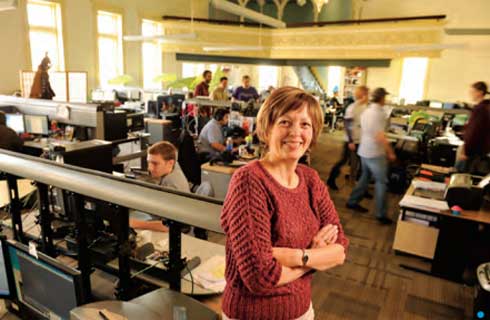核工程理学硕士
Master of Science in Nuclear Engineering

学历文凭
Masters Degree

专业院系
Mechanical, Aerospace, and Nuclear Engineering

开学时间

课程时长

课程学费

国际学生入学条件
Transcripts and Degrees must be in English (all post-secondary education, including transcript keys).
Unofficial transcripts should be uploaded to your graduate application. The minimum requirement for admission consideration is the completion and award of a four year U.S. bachelor's degree, or its equivalent, by the time of planned enrollment.
Personal Statement
Resume or curriculum vitae
Two letters of recommendation
Portfolio, if required by department
TOEFL score of 88 iBT
IELTS score of 6.5
IDP—雅思考试联合主办方

雅思考试总分
6.5
- 雅思总分:6.5
- 托福网考总分:88
- 托福笔试总分:160
- 其他语言考试:Duolingo score of 120<br>PTE score of 59
CRICOS代码:
申请截止日期: 请与IDP联系 以获取详细信息。
课程简介
Rensselaer's Nuclear Engineering program is home to over 130 undergraduate and graduate students. With focuses on reactor physics and design, thermal-hydraulics, health physics, and reactor materials, the Nuclear Engineering program offers a diverse set of courses to fit almost any curriculum. Additionally, the program includes a competitive Senior Design Program, maintains two world-class research facilities, and is home to a highly active student section of the American Nuclear Society. The NE Department was officially formed in 1960 and is one of the oldest such programs in the U.S. The construction of the accelerator facility was completed in 1961 and the facility would soon be named after Professor Gaerttner who was instrumental in establishing NE at Rensselaer and who served as NE's first departmental head. Within a few years, the NE Department at Rensselaer awarded its first PhD degrees and then B.S. degrees.<br><br>At Rensselaer, concentrations are available in fission reactor physics, reactor engineering, health physics, thermal-hydraulics, reliability and safety, and reactor materials. Boasting unique and state-of-the-art research facilities, Rensselaer students have access to a critical reactor, a large electron accelerator, and modern computer interfacing technology. With today's need for inexpensive sources of energy, Rensselaer nuclear engineering graduates are in great demand for positions in industry or graduate study. Additionally, there are exciting possibilities in space power propulsion, fusion reactor engineering, medicine, and national defense.<br><br>The M.S. degree is perceived to be scholarly or fundamental and is well suited to students who wish to prepare for a professional career and also to measure their ability to pursue a Ph.D. without commitment of extra time beyond that required for an M.S.<br><br>Students completing the M.S. degree will write a thesis based on a research topic chosen by the student and a professor who serves as the academic adviser. The topic is chosen based on mutual interests and needs. Course work typically focuses on subjects related to the research topic. The corresponding thesis, independently written by the student as a single author, must be approved by the adviser as well as two additional committee members from the department's faculty (Master's Committee). A thesis defense will be presented to this committee.
相关申请
 预科
预科 奖学金
奖学金 实习机会
实习机会 在校学习
在校学习 跨境学习
跨境学习 校园授课-线上开始
校园授课-线上开始 在线/远程学习
在线/远程学习
开学时间&学费
学费信息仅供参考,请与IDP联系以获取详细信息
| 开学时间 | 时长 | 学费 | 地点 |
|---|
学校排名

世界排名351
数据源:
泰晤士高等教育世界大学排名
本校相关课程

电气工程学学士学位
学历文凭
Bachelor Degree
开学日期
课程费用总额


Bachelor of Science in Interdisciplinary Science
学历文凭
Bachelor Degree
开学日期
课程费用总额

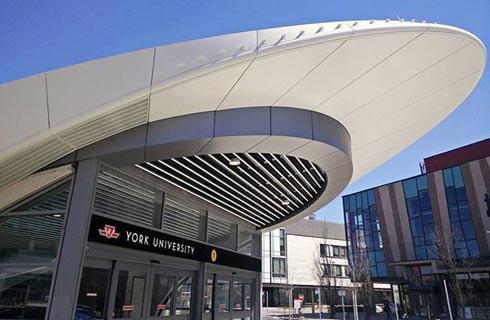
Bachelor of Science in Physician-Scientist/Doctor of Medicine
学历文凭
Combined Bachelor's / Doctoral Degree
开学日期
课程费用总额

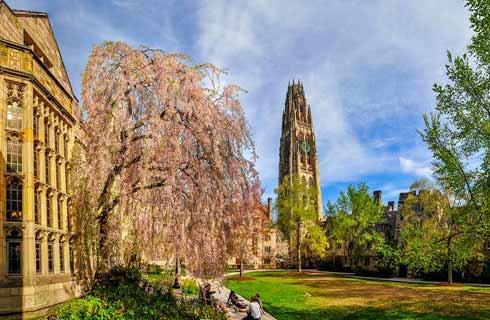
技术商业化和创业学理学硕士
学历文凭
Masters Degree
开学日期
课程费用总额

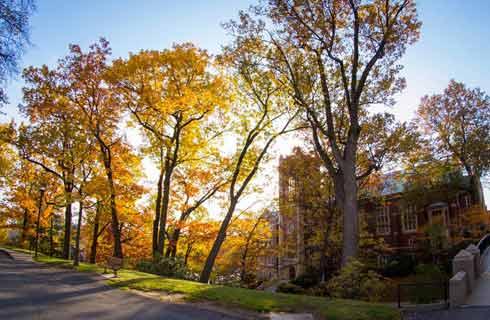
科学技术哲学博士
学历文凭
Ph.D.
开学日期
课程费用总额

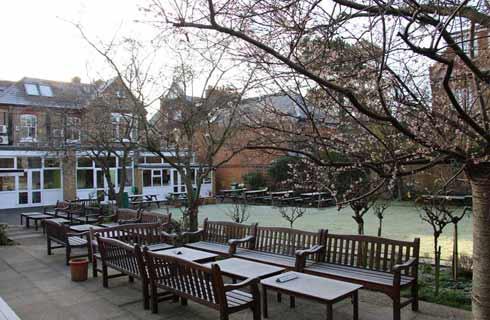
物理学哲学博士
学历文凭
Ph.D.
开学日期
课程费用总额

其他相关课程

核工程学硕士
 安大略理工大学
安大略理工大学泰晤士高等教育世界大学排名:915
学历文凭
Masters Degree
开学日期
课程费用总额

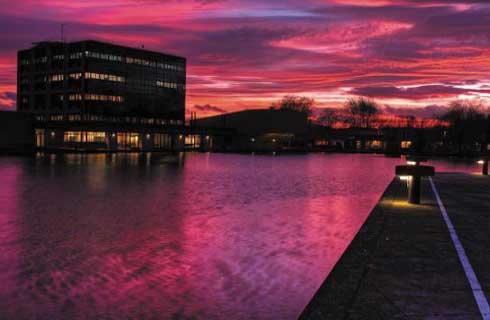
核工程应用科学硕士
 安大略理工大学
安大略理工大学泰晤士高等教育世界大学排名:915
学历文凭
Masters Degree
开学日期
课程费用总额


核工程哲学博士(PhD)
 安大略理工大学
安大略理工大学泰晤士高等教育世界大学排名:915
学历文凭
Ph.D.
开学日期
课程费用总额


核工程学工程和管理(荣誉)学士学位
 安大略理工大学
安大略理工大学泰晤士高等教育世界大学排名:915
学历文凭
Bachelor Degree with Honours
开学日期
课程费用总额


核工程学学士学位(荣誉学位)
 安大略理工大学
安大略理工大学泰晤士高等教育世界大学排名:915
学历文凭
Bachelor Degree with Honours
开学日期
课程费用总额


Master of Engineering in Civil Engineering - Nuclear Engineering
 滑铁卢大学
滑铁卢大学学历文凭
Masters Degree
开学日期
课程费用总额









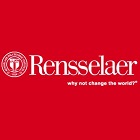
 美国
美国
